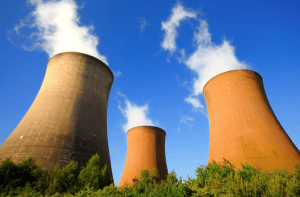Nuclear electricity in Ghana estimated to cost between 5 and 8 cents per KWH
 A pre-feasibility study on electricity usage and cost by Ghana’s Nuclear Power Programme (NPP) is estimated between 5 to 8 cents per kilowatt-hour (kWh).
A pre-feasibility study on electricity usage and cost by Ghana’s Nuclear Power Programme (NPP) is estimated between 5 to 8 cents per kilowatt-hour (kWh).
A statement issued and signed by Madam Sheila Frimpong, the Acting Director of Commercialisation and Communication Directorate at the Ghana Atomic Energy Commission, said nuclear power was an economic electricity-generation source because of its low levelized cost, low operating cost, and most significantly, relatively stable fuel regime.
The statement quoted Dr Seth Kofi Debrah, the Director-General, Ghana Atomic Energy Commission, as saying that nuclear power held the key to reducing the overall electricity tariff in the country as well as ensuring a reliable power supply, which would give Ghanaian businesses the impetus to be very competitive.
“Other countries spend less than 20 percent on electricity to produce goods and services whereas Ghanaian industries spend close to 40 percent of production cost on electricity. This makes Ghanaian goods and services relatively expensive,” he said.
He indicated that other countries had used nuclear technology to push their industrialisation agenda and that the time had come for Ghana to chart that path.
“We have some energy generation potentials in the areas of solar, wind, and a number of hydro potential sites, with a single maximum site capacity of about 100MW. There are others we have to look at, and that is, nuclear. Other countries have used this nuclear technology to develop, push their industrialization agenda, while providing well paid and secured jobs,” he said.
Dr. Debrah indicated that the implementation of the Nuclear Power Programme and project would generate a lot of local content and local participation in the areas of engineering, manufacturing, civil construction and assembly services, operation and maintenance, and technical support services, among others.
“We are not just talking about the nuclear power plant and the pricing, we are talking about opportunities it will provide to Ghanaian industries and the benefits to the citizenry,” he added.
Dr. Debrah noted that with the establishment of the African Continental Free Trade Area (AfCFTA), it was important Ghanaian industries properly positioned themselves to take full advantage of the nuclear power project.
Dr. Debrah said the objective of the Project was to support the overall economic and industrial transformation as a major driver and also to promote Ghana as a sub-regional energy hub.
With respect to the progress made, he said Ghana had completed phase one of the three-phase Nuclear Power Programme and had submitted a Comprehensive Report to the government.
Source: GNA
